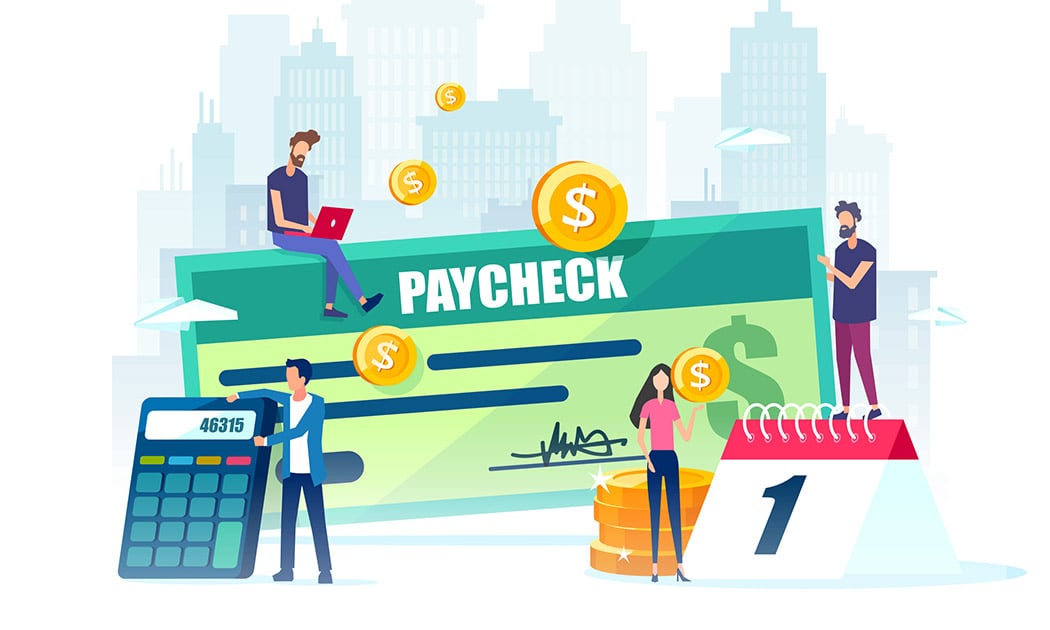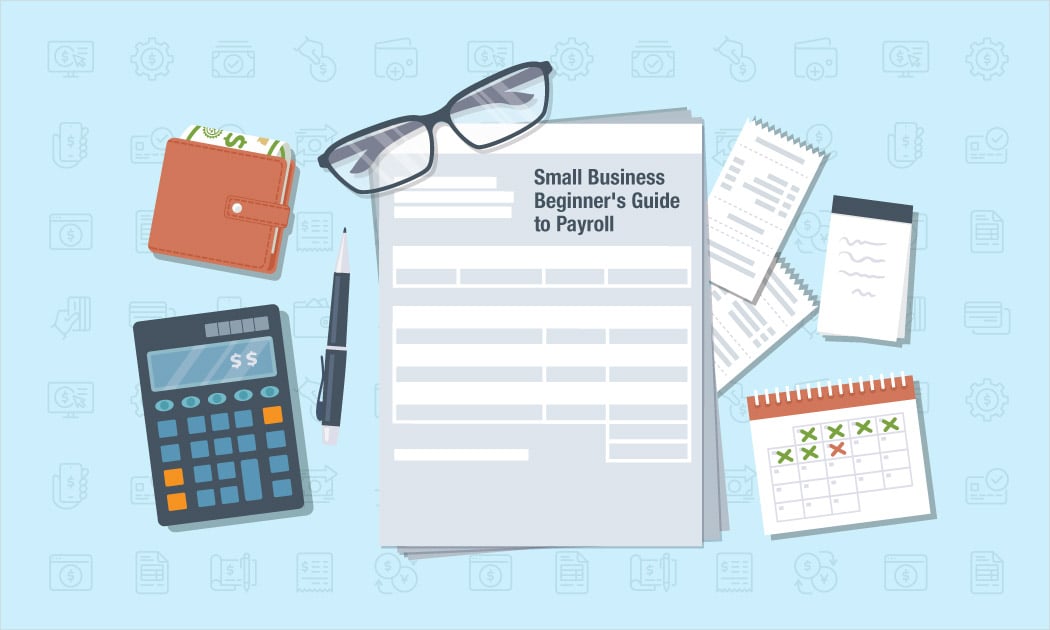The Payroll Blog
News, tips, and advice for small business owners
- Home
- Resources
- Payroll Blog
- How Payroll Can Make—or Break—Small Business Employee Trust
How Payroll Can Make—or Break—Small Business Employee Trust

Picture it: it’s the end of 2019, and the U.S. economy is chugging along at a better than expected rate, seemingly defying predictions of an imminent economy.
Flash forward: The calendar pages flip to 2020 and within a few months the world has changed. The coronavirus pandemic swept the globe at an unprecedented rate and pace, taking lives, ending jobs, and putting small businesses and the broader economy in peril.
Ahead of COVID-19, reports estimated that 59% of U.S. adults live paycheck to paycheck. Safety protocols and legislation put in place to slow the spread of the virus resulted in, at a minimum, changes to most businesses and in some cases the ceasing of operations all together. In April, unemployment levels rose over 10 percentage points to 14.7%. And while the reopening of states across the country starting in May has shown positive impacts, 21 million Americans are unemployed.
What hasn’t changed? The importance of payday in a small business employee’s life and in gaining their trust and confidence as an employer.
At the end of 2019 we surveyed small businesses and their employees for our 2020 Payday Report. The responses from small business employees were telling—and have become even more glaring as a potential opportunity—or pitfall—as businesses across America begin the slow process of reopening and returning to work.
The importance of payday for America’s small business workforce
For small business employees, the days and hours leading up to a direct deposit or paper check pick-up are stressful, and the payday relief short-lived. Our report reveals a stark truth: 34% of small business employees say they have little to no money in their bank accounts on payday and 71% schedule bill payments based on the scheduled pay period.
Should their paycheck never arrive — or arrive in the incorrect amount — workers risk overdraft fees, may need to borrow money from family and friends, or even be faced with an inability to cover basic living expenses:
- When funds are already tight a payday mishap can have devastating effects. Small business employees first sacrifice discretionary spending like clothing, entertainment and savings. But our report shows that many employees are also forced to cut spending on groceries, potentially forgo bills, and may even be unable to pay rent or their mortgage. This puts some at risk for predatory lending practices, whether they rack up credit card debt or take out payday loans.
- It takes an emotional and mental toll. Our report found that anxiety, loss of sleep, and anger at an employer are the biggest non-financial effects of a missed paycheck.
- The employee-employer trust is broken. Over 90% of small business employees say they trust their employers to run payroll on-time and accurately. But that trust is easily broken or diminished by missed paydays or paycheck mistakes, with more than half of respondents indicating it could impact their decision to remain with an employer.
The COVID-19 Curveball
As you can see from the responses, payday is an emotionally fraught subject for many American small business employees, regardless of how well the economy may look at a macro level. When our survey was conducted, it was very much a candidate’s market and the war on talent was a challenge for many small businesses. While that has changed, the need to be able to hire and retain employees is more critical for many businesses than ever before….and it may be difficult to do so for different reasons.
Inflated unemployment benefits and ongoing health and safety concerns have resulted in some small business employees rejecting a return from furlough, rehire, or new job offer.
And while the Paycheck Protection Program Flexibility Act does provide a safe harbor for small business borrowers who need to return to wage and staffing levels, small businesses need resources to get back into business and need to be running payrolls to take advantage of loan forgiveness.
So how do you get it right?
When it comes to preventing payroll mistakes, getting payroll back on track, and taking advantage of the economic relief available to employers through the Families First Coronavirus Response Act and the Coronavirus Aid, Relief, and Economic Security Act, small business owners don’t have to go the DIY route.
A payroll provider can offer small businesses the infrastructure and technology to stay up to date with the latest compliance requirements, employment legislation, and tools to put payroll on cruise control so they never miss a payday again. Using a trusted provider can also provide the benefit of enhanced documentation and record-keeping, key for small businesses facing an audit, or needing to submit for PPP loan forgiveness. Ensuring that you’re able to commit to your payroll obligations will go a long way toward helping you recruit and retain staff in these uncertain times.
Ready to learn more? To read the full report and learn more about how you can set your business up for payday success, access the complete 2020 Payday Report.
Related Blog Posts
View Our Plans and Pricing
Small Business Is Our Business.
This website contains articles posted for informational and educational value. SurePayroll is not responsible for information contained within any of these materials. Any opinions expressed within materials are not necessarily the opinion of, or supported by, SurePayroll. The information in these materials should not be considered legal or accounting advice, and it should not substitute for legal, accounting, and other professional advice where the facts and circumstances warrant. If you require legal or accounting advice or need other professional assistance, you should always consult your licensed attorney, accountant or other tax professional to discuss your particular facts, circumstances and business needs.



